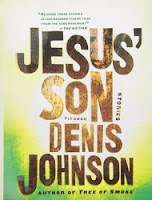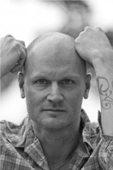
Mr. Barnes,
I went to Tulsa once, more than 25 years ago, to visit my sister. She and her husband had just moved there so he could die near where he was born. He was diagnosed with cancer a few months into the marriage. The last time I saw him, he was in a hospital bed in Dallas, and his head was deformed and exploding with his disease. That visit was goodbye.
A few weeks later, I was pulled out of Spanish class so my family could join my widowed sister's side. I rode to Tulsa, Oklahoma in the back seat of my other sister's boyfriend's coupe—a Camaro. I felt the giddiness, nervousness, and melancholy one feels when one doesn't know what else to feel. But the mood in the Camaro was fine, with my other sister and her boyfriend magnetically alive and well. They seemed happy. Those two had great chemistry, like cocaine and alcohol.
In Tulsa, we found my parents, who had arrived from Dallas to console the inconsolable. My sister, 22, tragic, had been living with death in a strange city, and now death left her alone in that house. So she grieved, and we offered our presence as comfort. Little did I understand of sadness and grief.











